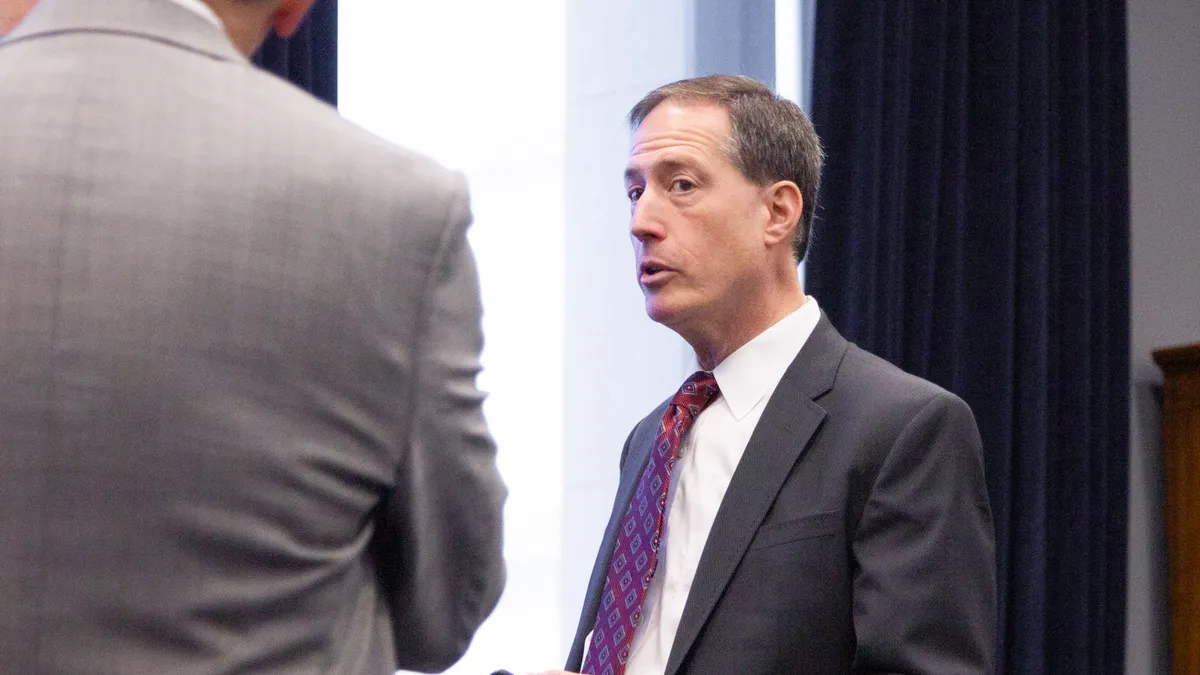Dive Brief:
- Jeff Shuren, director of the FDA's Center for Devices and Radiological Health, said Tuesday the agency must embrace the same regulatory flexibility going forward that it has shown in response to the coronavirus crisis.
- Speaking at a townhall during AdvaMed's Virtual MedTech Conference, Shuren said there are lessons learned from COVID-19 that must inform how FDA operates in the future. "The greatest tragedy of this pandemic would be if we did not learn from it; and not just how we may be better prepared for the next outbreak, but how we can take the lessons learned to better serve patients at all times."
- While Shuren observed that FDA has rapidly adapted in response to the changing crisis with unprecedented flexibility, he acknowledged the regulatory paradigm established for medical devices is more than 40 years old and is "not well suited for many modern-day technologies."
Dive Insight:
FDA has fully leveraged its emergency use authorization authorities during the pandemic to "maximize timely availability" of diagnostics and medical devices with "some assurances of the safety and effectiveness" of these products, according to Shuren, who called CDRH's response to COVID-19 an "all-hands-on-deck" approach.
In particular, the CDRH chief noted more than 500 EUAs issued since the beginning of February, and an average of one new diagnostic test per day. As of Tuesday, FDA has granted EUAs to 271 diagnostics including 214 molecular, 52 antibody and 5 antigen tests.
Shuren said FDA hasn't had the "luxury of time" to respond to COVID-19 and had to adapt "on the fly" as best it could based on available information. On the testing front alone, he pointed out that CDRH has so far issued 23 guidances and 10 EUA templates with recommendations for how to validate different types of tests, with several updates to those documents along the way.
In addition, Shuren contends CDRH took its existing collaborative approach used in the Breakthrough Devices Program and "put it on steroids" with a pre-emergency use authorization process through which developers can interact with center staff in real time via emails and phone calls to review data on a rolling basis.
"The level of regulatory flexibility has been unprecedented and could serve as a model in the future," Shuren observed.
"As we look to the future, we should consider how to make this level of regulatory flexibility a tailoring of the regulatory paradigm and the evidence required for full marketing authorization to the technology and its intended use, as well as rapidly developing and issuing guidance to establish and adjust policies in near real-time as circumstances warrant."
At the same time, Shuren said FDA is being held back by the agency's current medtech regulatory authorities that are more than 40 years old. He contends the current paradigm is not flexible or adaptable enough for today's technologies with rapid innovation cycles. "There is a way to do this a lot better but we've got to have the tools and capabilities to make that happen," Shuren added.
The CDRH chief said these kinds of regulatory flexibilities should become routine practice in the future. However, Shuren didn't provide any specific proposals.
Regarding ongoing CDRH initiatives, Shuren said FDA is considering the potential of precertification for a broader set of technologies than just digital health. While the agency has yet to finalize its ongoing software precertification program, meant to fast-track digital health products to market by reducing certification hurdles for developers of software-based medical devices, Shuren said CDRH is looking to other tech areas.
The Pre-Cert pilot, which launched in 2019 and includes Apple, Fitbit, Johnson & Johnson and six other companies, has been "incredibly informative," but Shuren said it is still a learning model as CDRH tries to provide oversight to ensure innovation and patient safety. However, if FDA were to expand the scope for precertification beyond digital health, he noted it would require legislation from Congress.
"Right now, we're doing it under limited conditions for De Novo. But, if we really want to make this a program, the law would have to change," Shuren added. "Should we do something that's just purely tailored to digital health technologies or should we think more expansively on what we should do with medtech?"












